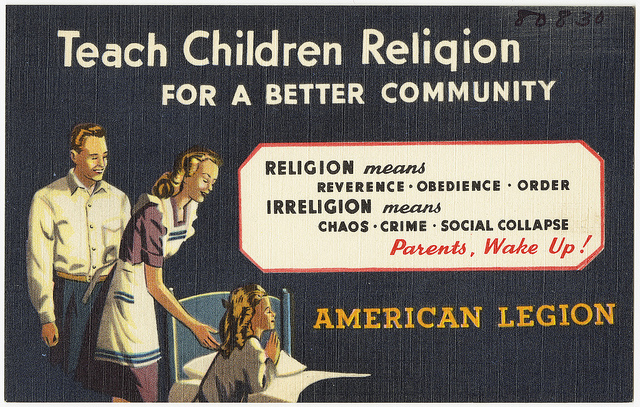
Sociologist Penny Edgell discussed the changing landscape of religion in public life over the past decade with Houston Matters. Since 2003, issues of religion in public life have shifted less than was previously expected. However, around three-quarters of the population worries that religion is divisive presence, and not just between religious and growing non-religious groups. People who embrace non-mainstream, mainly non-Christian religious beliefs in the US feel left out of discussions around key issues in public life, Edgell explained. Even generic references to “god” usually refer to the Christian God. Still, there is increasing support for religious pluralism and for teaching religious diversity in public schools. Edgell says that Americans generally have a broad sense of unease with religion in public life, but value freedom of religious expression and an understanding of the tenets of other faiths.
Aside from being a civil liberty, religious expression acts a marker of morality in public life. This, Edgell explains, can mean trouble for the estimated one-third of Americans who don’t claim a religious identity. About half of Americans believe that being religious is important for being a good citizen, and they are more likely to trust religious people because they assume they share the same values. Edgell found that 27% of Americans agree that “atheists don’t share my moral values.”

Comments 1
Sarah Catherine Billups — February 22, 2015
How fitting was it that when I was flying out of Ronald Reagan in our nation's Capitol that they kept announcing a "brief Christian worship service" over the PA? Seems like it's not just being religious, but being religious and Christian that is the marker of good citizenship.